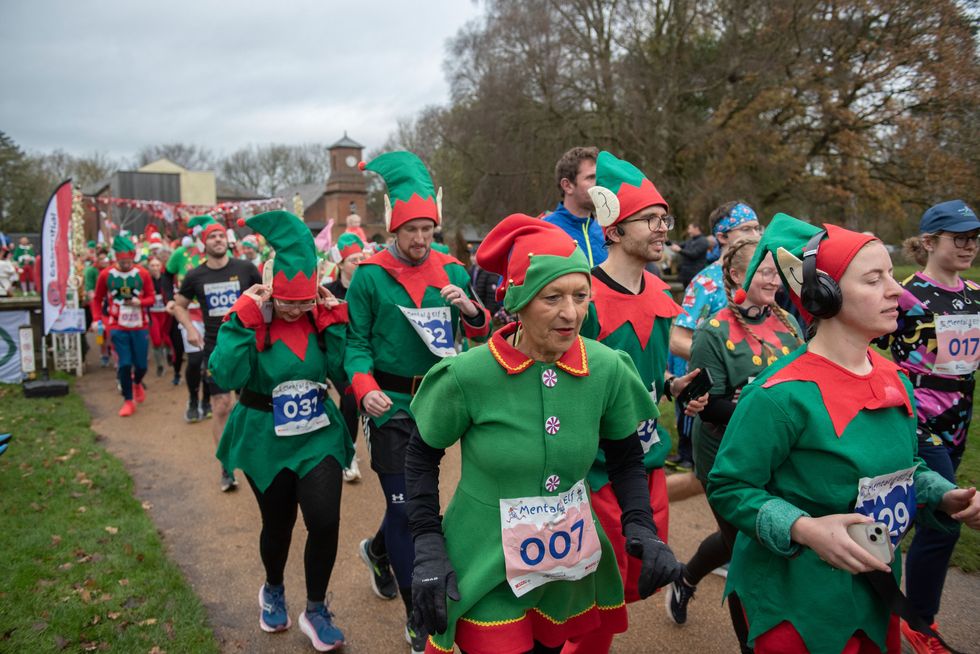The world's top consumer goods companies, making everything from instant noodles to soap and ice cream, are paying less for their raw materials and energy, but it may take time before shoppers see significantly lower price tags for household goods.
Rising expenses for everything from sunflower oil to milk and grain have hit the packaged goods industry hard over the past two years, prompting companies to hike prices and helping fuel a cost-of-living crisis in many parts of the world.
Cost inflation rose during the COVID-19 pandemic and was exacerbated by Russia's invasion of Ukraine, which sent energy prices to record highs last year. Energy costs have since dropped, however, while global prices for some commodities are rising more slowly.
Companies like Nestle, Procter & Gamble, Reckitt Benckiser and Danone continued to raise prices sharply in the first quarter even though input costs are easing.
Cost of goods inflation will be "significantly" lower this year - Reckitt expects 5 to 9 per cent versus 18 per cent last year, the company's finance chief Jeff Carr said on a call on Wednesday to discuss earnings results.
Carr said that while salary costs have increased, commodities are a "mixed bag" and freight costs have declined. First quarter price/mix, a basket of variables the company uses to help determine what prices to charge, rose 12.4 per cent while sales volumes declined 4.5 per cent.
"Our pricing obviously will be measured in 2023, where we did most of our heavy lifting or pricing in 2022," Carr said.
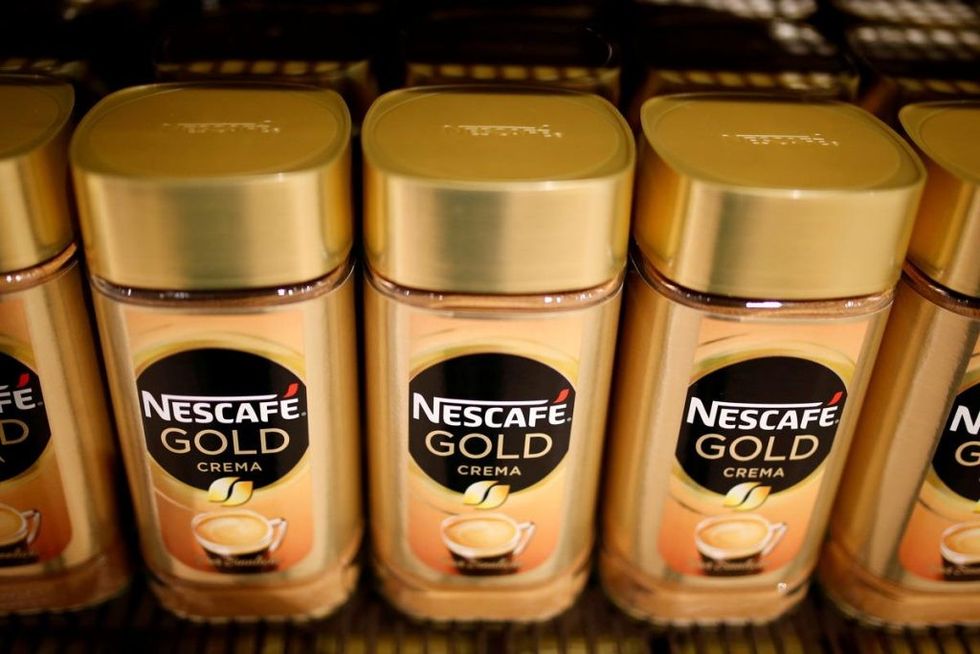
Danone CFO Juergen Esser told a post-earnings call with analysts that while labour costs, liquid milk and sugar prices are up, some other costs are down, so "we expect inflation to decrease through the year".
The maker of Activia yoghurt and Evian water raised first-quarter prices by 10.3 per cent and volume/mix rose 0.2 per cent.
It is unclear when companies may start passing on some of their lower costs to customers. On Tuesday, Associated British Foods said it does not expect many more price increases in the second half of this year, as costs including wheat, vegetable oils, freight and energy start to fall.
Procter & Gamble Co, which makes Pampers diapers, and rival Kimberly-Clark Corp, the manufacturer of Huggies, both saw their sales volumes decline in recent quarters as they pushed through higher prices. Both P&G's and Kimberly-Clark's volumes declined less than the prior quarter. Executives for both companies flagged that pulp, a key ingredient in diapers and toilet paper, has fallen in price.
'Not Deflation'
Companies including Unilever, which reports earnings on Thursday, acknowledged in February that the industry was past "peak inflation, but not yet past peak pricing".
Several firms have since made near-record price hikes: beverage giant Coca-Cola Co said average selling prices rose by 11 per cent in the first quarter, while rival PepsiCo Inc said its prices gained 16 per cent.
Many in the industry bought ingredients far in advance, when prices were higher, so it will take time for that to trickle through to the supermarket shelves.
"We tend to buy nine to 12 months out on commodities," PepsiCo chief financial officer Hugh Johnston said in an interview with Reuters.
"Anytime there is an increase in commodity prices, it hits us a little bit later, and when there's a decrease in commodity prices, we would we feel the benefit of that decrease a little bit later as well."
The European Central Bank is concerned that if food inflation keeps accelerating, it will have an outsized impact on consumers' inflation perception, potentially changing spending behaviour, pressuring wage demands and impacting interest rates.
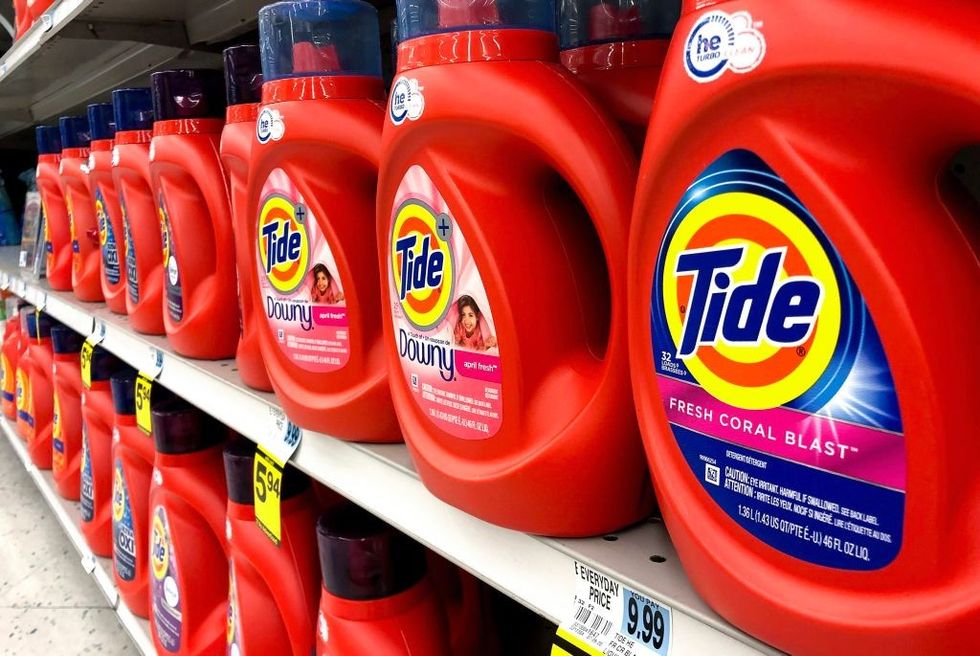
P&G customers, particularly in the US, continued to show little resistance during the quarter to 10 per cent price increases, helping the Tide detergent maker boost margins even as overall volumes fell 3 per cent.
Similarly, Nestle increased its prices by 9.8 per cent during the quarter and sales volumes fell 0.5 per cent. CEO Mark Schneider said the European consumer had been more "resilient" than expected.
When a company can raise prices to a large degree "it highlights the value of their brands, the value of their pricing power" said Neil Denman, a fund manager at Reckitt and Unilever investor Sarasin & Partners.
"I think that's what we're going to see with companies through this year: which companies really have the ability to pass prices through in a difficult consumer environment?"










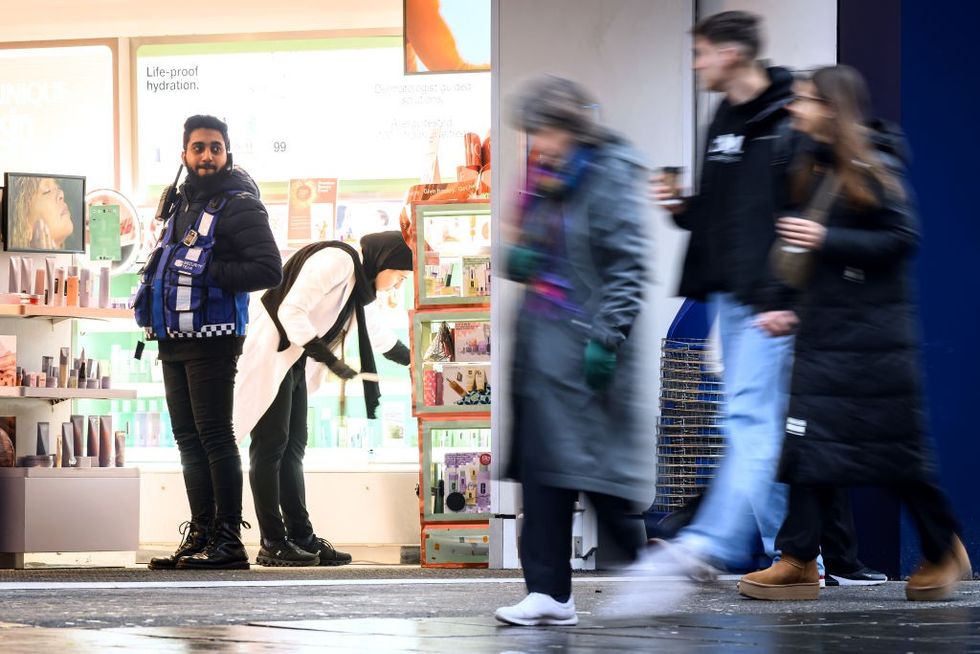 A security guard stands in the doorway of a store in the Oxford Street retail area on December 13, 2024 in London, EnglandPhoto by Leon Neal/Getty Images
A security guard stands in the doorway of a store in the Oxford Street retail area on December 13, 2024 in London, EnglandPhoto by Leon Neal/Getty Images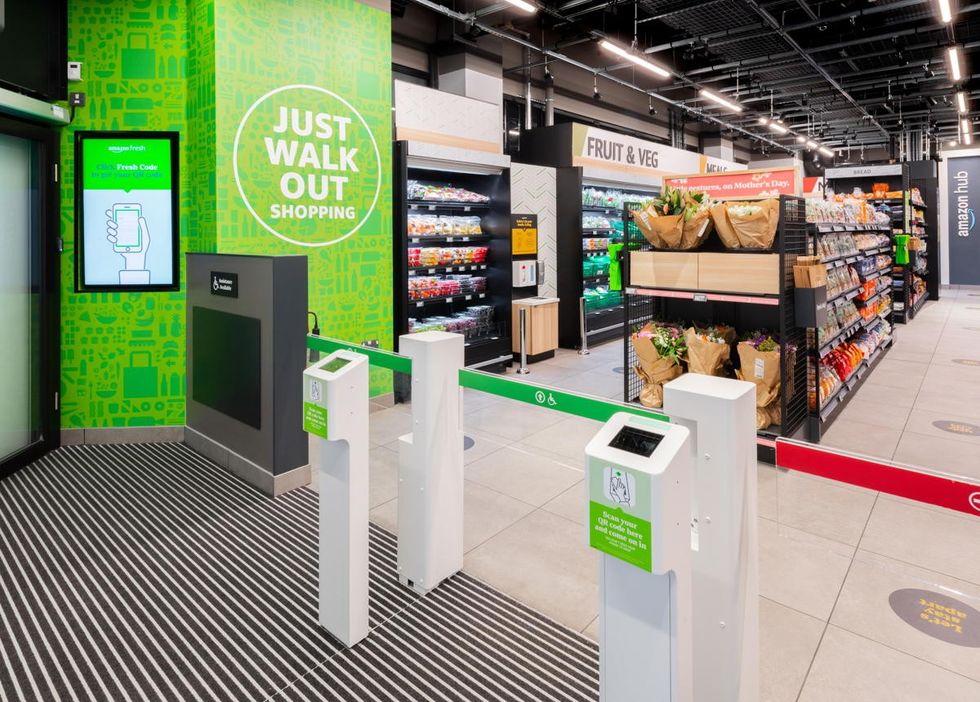 The Amazon Fresh store in Ealing, LondonPhoto: Amazon
The Amazon Fresh store in Ealing, LondonPhoto: Amazon







 A woman browses some of the Christmas gift ideas in a store on December 13, 2024 in London, England. Photo by Leon Neal/Getty Images
A woman browses some of the Christmas gift ideas in a store on December 13, 2024 in London, England. Photo by Leon Neal/Getty Images

